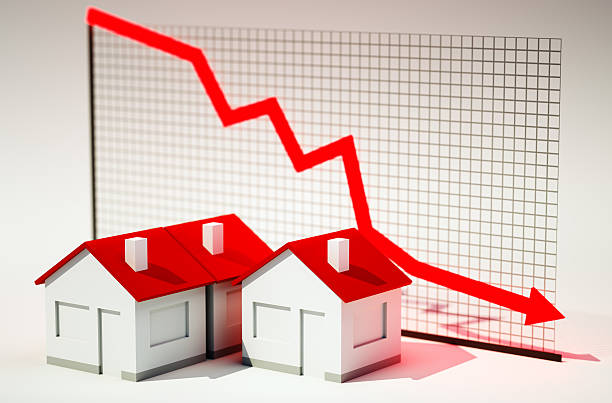When purchasing a condominium, buyers often make significant financial commitments through deposits to secure their investment. However, an unforeseen event, such as the bankruptcy of the developer or the buyer themselves, can raise a critical question: Are condominium deposits discharged in bankruptcies? Understanding the intricacies of bankruptcy law is essential for protecting your financial stake and navigating potential risks. In this article, we explore the legal framework surrounding condominium deposits in bankruptcy cases and offer guidance on safeguarding your investment.
Understanding the Automatic Stay in Bankruptcy Proceedings
Bankruptcy filings trigger an automatic stay, a legal mechanism that halts all collection activities and litigation against the debtor. While this can provide relief to the party filing for bankruptcy, it complicates matters for creditors and other stakeholders, such as condominium buyers. For developers, bankruptcy may pause construction or refund obligations, leaving buyers in a precarious position. For buyers, the automatic stay could temporarily protect deposits from being claimed by creditors, but this protection is not absolute.
Understanding how the automatic stay functions is crucial to determining whether your condominium deposit remains secure during bankruptcy proceedings.
- How the Automatic Stay Affects Developers and Buyers
For developers, the automatic stay often means halting construction projects, refund processes, and financial commitments tied to the condominium. Buyers, on the other hand, may find themselves in limbo as they await clarity on the status of their deposits. Legal counsel can be invaluable during this period, offering insights into the best course of action depending on the specific circumstances of the bankruptcy case.
- Limitations of the Automatic Stay
While the automatic stay provides temporary relief, it does not guarantee the protection of condominium deposits in the long term. If the bankruptcy court determines that the deposit is part of the debtor’s assets, buyers may face challenges recovering their funds. Knowing these limitations can help you prepare for potential outcomes.

The Impact of Chapter 7 Bankruptcy on Condominium Deposits
In a Chapter 7 bankruptcy, assets of the filing party are liquidated to pay off creditors. For developers, this could mean selling incomplete properties or other assets to satisfy debts. Unfortunately, buyers’ condominium deposits may be treated as unsecured claims, placing them at the bottom of the repayment priority list.
- Challenges in Retrieving Deposits in Chapter 7
One of the primary challenges for buyers is the classification of their deposits. If the deposit is not held in a properly managed escrow account, it may be considered part of the developer’s general assets, making it difficult to recover. Buyers must understand how their deposits are handled and ensure they are protected by escrow agreements.
- Importance of Escrow Accounts
An escrow account is a designated account where funds are held until specific conditions are met. In many states, developers are legally required to place condominium deposits into escrow accounts to safeguard buyers’ investments. Ensuring your deposit is held in such an account can significantly increase your chances of recovering it in the event of a bankruptcy.

Navigating Chapter 13 Bankruptcy: Repayment Plans and Condo Deposits
Chapter 13 bankruptcy involves a reorganization of debts through a court-approved repayment plan. Unlike Chapter 7, this type of bankruptcy allows the debtor to retain assets while repaying creditors over time. For condominium buyers, this means the developer might resume construction or refund deposits gradually through the repayment plan.
1. Key Differences Between Chapter 7 and Chapter 13
While Chapter 7 focuses on liquidation, Chapter 13 is centered on debt restructuring. This distinction is critical for condominium buyers, as Chapter 13 may provide a pathway for the developer to fulfill their obligations, including completing construction projects or refunding deposits.
2. Evaluating the Repayment Plan
Buyers should carefully evaluate the repayment plan proposed in Chapter 13 cases. Not all plans prioritize condominium deposits, and the timeline for repayment can be lengthy. Consulting with a bankruptcy attorney can help you understand the implications of the repayment plan and advocate for your interests.

Protecting Your Investment: Legal Considerations for Condo Buyers
To minimize risks associated with condominium deposits and bankruptcies, prospective buyers should take the following legal precautions:
- Verify Escrow Arrangements: Ensure that your deposit is held in a legally mandated escrow account separate from the developer’s operating funds.
- Research Developer’s Financial Stability: Investigate the developer’s history and financial health before committing to a purchase.
- Consult with a Real Estate Attorney: Legal professionals can review purchase agreements and identify potential risks tied to bankruptcy scenarios.
- Understand State-Specific Laws: Laws regarding condominium deposits and bankruptcy protections vary by jurisdiction. Familiarize yourself with the relevant regulations in your state.
Additional Tips for Protecting Your Investment
- Request Transparency: Ask developers for detailed information about how deposits are managed and the measures in place to protect buyers.
- Stay Informed: Keep track of any signs of financial instability in the developer’s operations. Early detection can provide more options for safeguarding your deposit.
Taking these steps can help you secure your investment and avoid pitfalls in case of bankruptcy.

Condominium Associations and Bankruptcy: What You Need to Know
Bankruptcy doesn’t just affect buyers and developers; it can also have significant implications for condominium associations. If a developer declares bankruptcy before transferring control to the association, future funding for shared amenities and repairs may be at risk. Associations may need to negotiate with creditors or take legal action to protect communal property.
- The Role of the Condominium Association
Condominium associations often act as intermediaries between individual owners and developers. In the event of a bankruptcy, associations may need to step in to address issues such as unpaid fees, incomplete construction, or disputes over property ownership.
- Mitigating Risks for Associations
Associations can mitigate risks by maintaining strong financial reserves, working with legal counsel, and establishing clear bylaws that address bankruptcy scenarios. Proactive planning can help associations navigate these complex situations effectively.
Let Marketing Technology Help You
Navigating the complexities of condominium deposits and bankruptcies requires knowledge and preparation. Whether you are a buyer, developer, or association member, understanding your rights and options is crucial to protecting your investment.
At Marketing Technology, we understand the importance of clear and accessible information. In addition to offering SEO services and content marketing, we specialize in creating engaging content that helps our clients connect with their target audience. Let us help you deliver the insights your audience needs while ensuring your business thrives online. Contact us now!

Frequently Asked Questions:
1. Are condominium deposits discharged in bankruptcies if the developer files Chapter 7?
Condominium deposits may be treated as unsecured claims in Chapter 7 bankruptcy, making it difficult for buyers to recover their funds. Ensuring your deposit is held in an escrow account can improve your chances of recovery.
2. What legal protections are available for condo buyers during bankruptcy proceedings?
Buyers can protect their investment by verifying escrow arrangements, researching the developer’s financial stability, and consulting with a real estate attorney to understand their rights.
3. How can condominium associations safeguard their finances in case of member bankruptcies?
Associations should establish strong financial reserves, work with legal counsel, and create clear bylaws that address bankruptcy scenarios to mitigate risks effectively.





